This article was medically reviewed by Luba Lee, FNP-BC, MS. Luba Lee, FNP-BC is a Board-Certified Family Nurse Practitioner (FNP) and educator in Tennessee with over a decade of clinical experience. Luba has certifications in Pediatric Advanced Life Support (PALS), Emergency Medicine, Advanced Cardiac Life Support (ACLS), Team Building, and Critical Care Nursing. She received her Master of Science in Nursing (MSN) from the University of Tennessee in 2006.
There are 13 references cited in this article, which can be found at the bottom of the page.
wikiHow marks an article as reader-approved once it receives enough positive feedback. In this case, 100% of readers who voted found the article helpful, earning it our reader-approved status.
This article has been viewed 264,082 times.
Experts say urinary tract infections (UTIs) typically affect your bladder and urethra but could become serious if they spread to your kidneys. UTIs occur when bacteria enters your urethra and multiplies in your bladder. While women are more at-risk, UTIs can happen to anyone.[1] Research suggests that simple changes like showering, limiting personal care products around your genitals, and maintaining good hygiene may help prevent UTIs.[2]
Steps
Lifestyle Changes
-
1Take showers, not baths. Especially for women, lying in a bathtub can make the urethra susceptible to infection, since it's easy for water and bath products to enter the body. Showering eliminates the problem and can go a long way toward preventing urinary tract infections.[3]
-
2Wear the right underwear. Believe it or not, the underwear you choose can have a big impact on whether you get a UTI. Keep these factors in mind next time you go underwear shopping:[4]
- Silk or polyester underwear traps moisture and bacteria against the body, increasing your risk of getting an infection. Cotton is a more breathable fabric, allowing air to circulate and preventing bacterial growth.
- Wearing thongs and other tight underwear can also cause a problem. Save these for special occasions and don't wear them for more than a few hours.
- Avoid wearing tights and hosiery that aren't made with breathable fabric.
- Choose loose clothing that feels breathable.
Advertisement -
3Drink at least 8 to 10 cups (1.9 to 2.4 L) of fluids daily. Drinking more water flushes your system and allows you to produce more urine. At a minimum, drink 8 cups (1.9 L) of water daily. However, increase your fluid intake if you are active, ill, or in a hot environment.[5]
- After you have sex, drink water to flush out your system.
- If your urine is darker than a very pale yellow, it's a sign of dehydration. You need to increase your water intake.
-
4Urinate often. Holding urine inside when you feel the urge to go increases the chances that bacteria present near your urethra could make its way inside. Urinating pushes bacteria from the area, reducing the chance of infection.[6]
- To flush the area often, drink plenty of water. Try to urinate once every hour or hour and a half.
- If your urine is yellow, you should be drinking more water. Aim for eight glasses of water a day to keep your urinary tract flushed.
-
5Get moving. Sitting for too long with your legs crossed, especially if you do it on a daily basis, can create the right environment for bacteria to breed. It's important to get up and walk around several times a day.
- If you sit at a desk for work, make a point of taking walking breaks in the fresh air outside.
- Long airplane rides might make it necessary to sit in one position for hours. When the seatbelt light turns off, get up and walk down the aisle a few times.
Hygiene Habits
-
1Clean from front to back. After having a bowel movement or urinating it is very important to wipe from front to back, so you don't risk getting fecal matter in your urethra. This is a very common cause of urinary tract infections, so if you take this simple measure, you'll save yourself a lot of trouble.[7]
-
2Wash before and after having sex. Sexual intercourse is another situation that leaves you more susceptible to getting bacteria in your urethra. Take the time to wash yourself with soap and water both before and after having sex to greatly reduce your risk of getting a UTI.[8]
- Ask your partner to wash before sex, too. Many UTIs are contracted when a person is touched with a partner's hands or other body parts that have not been washed with soap and water.
- Urinating before and after sex is essential for preventing UTIs because it helps flush the bacteria that may be present near the urethra.
- Avoid having sex with someone while he or she has a UTI. Men are especially at risk of getting an infection from a partner who already has one.
- UTIs occur more frequently with a new sex partner. They should subside once you and your partner have been having intercourse for awhile.
-
3Avoid feminine sprays and douches. These products contain chemicals and perfumes that can irritate the urethra and cause an infection. The body produces natural cleansers to keep the internal vaginal area clean, so using soap and water on the exterior body parts should be sufficient.[9]
- Powders, especially scented powders, should also be avoided since they can irritate the urethra.
- Use gentle, natural cleansers if you do decide to clean the internal part of your vagina.
Diet and Nutrition
-
1Drink cranberry or blueberry juice. Studies show that regularly drinking cranberry or blueberry juice prevents infections. UTIs are often caused by E. coli, and cranberry and blueberry juice contain proanthocyanidins, which prevent E. coli from attaching to the bladder and urethra.[10]
- Try drinking low-sugar cranberry juice, since it has a higher cranberry concentration.
- Unfortunately, cranberry juice has not been shown to treat infections once they begin; it's strictly a preventative measure. However, it can help your body flush out bacteria in your system.
-
2Take herbal supplements. There's no conclusive research to show that these supplements prevent UTIs, but they are reputed to help treat infections.[11]
- Goldenseal extract is taken to prevent all types of infections and is also said to be helpful in preventing UTIs.
- Juniper oil increases urine volume, which aids in flushing bacteria away from the urethra.
-
3Avoid substances that irritate the bladder. Certain foods and drinks can put you at greater risk of getting or exacerbating a UTI.[12]
- Alcohol and caffeine can dehydrate you if they are consumed in large quantities. If you feel a UTI coming on, they can cause it to turn into a full infection.
- Acidic foods and drinks like orange juice, and tomatoes can irritate your bladder. Avoid them altogether if you're particularly prone to getting urinary tract infections. Lemon Juice alkalizes the body and is a useful means of bringing your pH balance back into balance. Lemons are the only citrus fruits that assist in alkalization.
-
4Include plenty of high-fiber foods in your diet. Fiber helps keep your bowels moving, which prevents constipation. Constipation can weaken your pelvic floor and increase your risk of developing a UTI. Eat plenty of vegetables, fruits, and whole grains, which contain fiber.[13]
- If you're a woman, your daily fiber recommendations are 21-25 grams per day. For men, daily fiber recommendations are 30-38 grams per day.[14]
Expert Q&A
-
QuestionCan I use Dettol to cure a UTI?
 Luba Lee, FNP-BC, MSLuba Lee, FNP-BC is a Board-Certified Family Nurse Practitioner (FNP) and educator in Tennessee with over a decade of clinical experience. Luba has certifications in Pediatric Advanced Life Support (PALS), Emergency Medicine, Advanced Cardiac Life Support (ACLS), Team Building, and Critical Care Nursing. She received her Master of Science in Nursing (MSN) from the University of Tennessee in 2006.
Luba Lee, FNP-BC, MSLuba Lee, FNP-BC is a Board-Certified Family Nurse Practitioner (FNP) and educator in Tennessee with over a decade of clinical experience. Luba has certifications in Pediatric Advanced Life Support (PALS), Emergency Medicine, Advanced Cardiac Life Support (ACLS), Team Building, and Critical Care Nursing. She received her Master of Science in Nursing (MSN) from the University of Tennessee in 2006.
Board-Certified Family Nurse Practitioner No, don't use Dettol or other antiseptics to treat a UTI or wash your vagina. Stick to a fragrance-free soap. Use the soap twice daily to wash your vaginal area in a front to back motion.
No, don't use Dettol or other antiseptics to treat a UTI or wash your vagina. Stick to a fragrance-free soap. Use the soap twice daily to wash your vaginal area in a front to back motion. -
QuestionIs it okay to use betadine feminine wash often?
 Luba Lee, FNP-BC, MSLuba Lee, FNP-BC is a Board-Certified Family Nurse Practitioner (FNP) and educator in Tennessee with over a decade of clinical experience. Luba has certifications in Pediatric Advanced Life Support (PALS), Emergency Medicine, Advanced Cardiac Life Support (ACLS), Team Building, and Critical Care Nursing. She received her Master of Science in Nursing (MSN) from the University of Tennessee in 2006.
Luba Lee, FNP-BC, MSLuba Lee, FNP-BC is a Board-Certified Family Nurse Practitioner (FNP) and educator in Tennessee with over a decade of clinical experience. Luba has certifications in Pediatric Advanced Life Support (PALS), Emergency Medicine, Advanced Cardiac Life Support (ACLS), Team Building, and Critical Care Nursing. She received her Master of Science in Nursing (MSN) from the University of Tennessee in 2006.
Board-Certified Family Nurse Practitioner Follow the directions on the label when using betadine, and don't use it more often than directed. It can dry out the skin of your vagina, so it's best to only use betadine to help heal minor cuts or tears on your vagina. While you should wash the outer part of your vagina with fragrance-free soap twice a day, you don't need to clean inside your vagina. Your vaginal discharge is actually what cleans inside your vagina. Products like washes and douches can disrupt your normal balance, increasing your risk of infection.
Follow the directions on the label when using betadine, and don't use it more often than directed. It can dry out the skin of your vagina, so it's best to only use betadine to help heal minor cuts or tears on your vagina. While you should wash the outer part of your vagina with fragrance-free soap twice a day, you don't need to clean inside your vagina. Your vaginal discharge is actually what cleans inside your vagina. Products like washes and douches can disrupt your normal balance, increasing your risk of infection. -
QuestionHow can I help elderly patients avoid UTIs?
 Robert Dhir, MDDr. Robert Dhir is a board certified Urologist, Urological Surgeon, and the Founder of HTX Urology in Houston, Texas. With over 10 years of experience, Dr. Dhir’s expertise includes minimally-invasive treatments for enlarged prostate (UroLift), kidney stone disease, surgical management of urological cancers, and men’s health (erectile dysfunction, low testosterone, and infertility). His practice has been named a Center of Excellence for the UroLift procedure, and is a pioneer in non-surgical procedures for ED using his patented Wave Therapy. He earned his undergraduate and medical degrees from Georgetown University and was awarded honors in pre-medical studies, urology, orthopedics, and ophthalmology. Dr. Dhir served as chief resident during his urological surgical residency at University of Texas at Houston / MD Anderson Cancer Center in addition to completing his internship in general surgery. Dr. Dhir was voted Top Doctor in Urology for 2018 to 2019, one of the top three Best Rated Urologists in 2019 & 2020 for Houston Texas, and Texas Monthly has named him to the 2019 & 2020 Texas Super Doctors Rising Stars list.
Robert Dhir, MDDr. Robert Dhir is a board certified Urologist, Urological Surgeon, and the Founder of HTX Urology in Houston, Texas. With over 10 years of experience, Dr. Dhir’s expertise includes minimally-invasive treatments for enlarged prostate (UroLift), kidney stone disease, surgical management of urological cancers, and men’s health (erectile dysfunction, low testosterone, and infertility). His practice has been named a Center of Excellence for the UroLift procedure, and is a pioneer in non-surgical procedures for ED using his patented Wave Therapy. He earned his undergraduate and medical degrees from Georgetown University and was awarded honors in pre-medical studies, urology, orthopedics, and ophthalmology. Dr. Dhir served as chief resident during his urological surgical residency at University of Texas at Houston / MD Anderson Cancer Center in addition to completing his internship in general surgery. Dr. Dhir was voted Top Doctor in Urology for 2018 to 2019, one of the top three Best Rated Urologists in 2019 & 2020 for Houston Texas, and Texas Monthly has named him to the 2019 & 2020 Texas Super Doctors Rising Stars list.
Board Certified Urologist & Urological Surgeon For women, proanthocyanidin supplementation is recommended. Use of vaginal estrogen creams has also been proven to minimize UTIs. Finally, women must completely empty their bladder. For elderly men, UTIs are usually a sign of obstruction and incomplete bladder emptying. A cytoscopy (scope into the bladder) is recommended to identify this cause.
For women, proanthocyanidin supplementation is recommended. Use of vaginal estrogen creams has also been proven to minimize UTIs. Finally, women must completely empty their bladder. For elderly men, UTIs are usually a sign of obstruction and incomplete bladder emptying. A cytoscopy (scope into the bladder) is recommended to identify this cause.
References
- ↑ https://my.clevelandclinic.org/health/diseases/9135-urinary-tract-infections
- ↑ https://www.cdc.gov/antibiotic-use/community/for-patients/common-illnesses/uti.html
- ↑ https://nyulangone.org/conditions/urinary-tract-infections-in-adults/prevention
- ↑ https://my.clevelandclinic.org/health/diseases/9135-urinary-tract-infections
- ↑ https://www.health.harvard.edu/blog/more-water-fewer-utis-2018101515035
- ↑ https://familydoctor.org/condition/urinary-tract-infections/
- ↑ https://emedicine.medscape.com/article/1958794-overview
- ↑ https://kidshealth.org/en/teens/uti.html
- ↑ https://medlineplus.gov/ency/patientinstructions/000391.htm
- ↑ https://www.uofmhealth.org/health-library/hw55783
- ↑ https://afju.springeropen.com/articles/10.1186/s12301-020-00111-z
- ↑ https://msktc.org/sci/factsheets/urinary-tract-infection
- ↑ https://www.urologyhealth.org/healthy-living/care-blog/10-foods-your-bladder-will-fall-in-love-with
- ↑ https://www.eatright.org/food/vitamins-and-supplements/types-of-vitamins-and-nutrients/easy-ways-to-boost-fiber-in-your-daily-diet
About This Article
To prevent urinary tract infections, wipe from front to back when you go to the bathroom, so no fecal matters gets into your urethra. Additionally, take showers rather than baths, since dirty water can get into your body when you sit in the tub. Choose underwear made from cotton to let air circulate and prevent bacteria from growing. Also, try to make cranberry juice or cranberry supplements a regular part of your diet, because studies have shown that there’s an ingredient in cranberries that helps prevent UTIs. For more tips on what to drink and how to keep yourself clean to prevent urinary tract infections, read on!

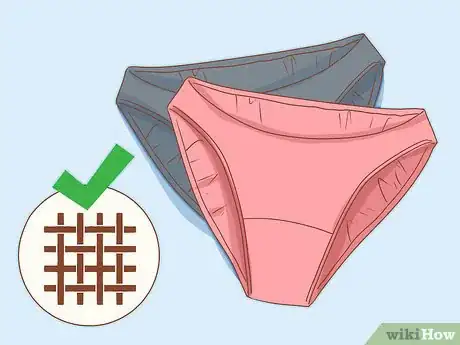

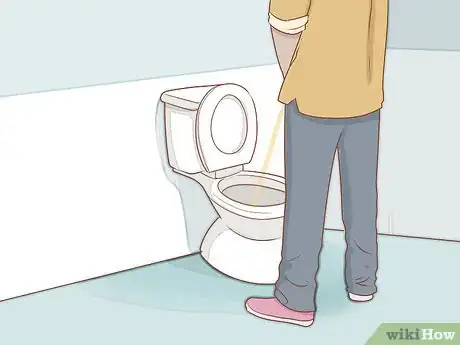

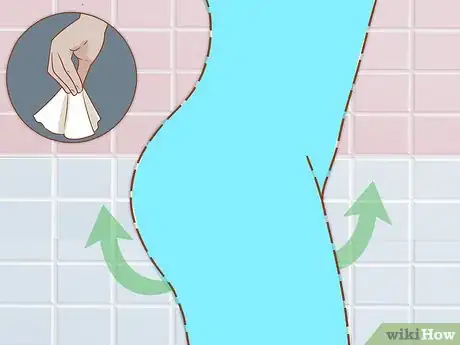
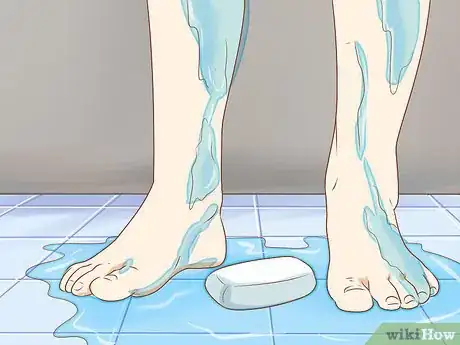
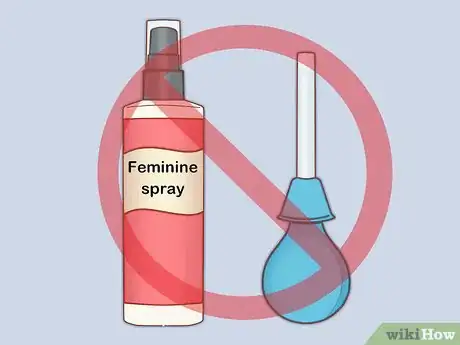

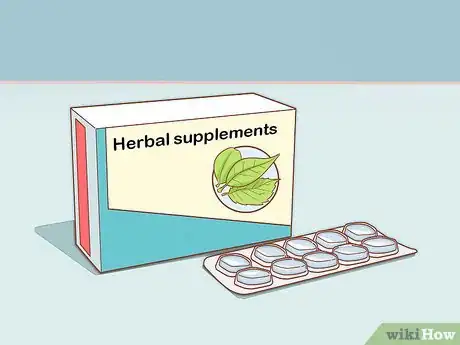
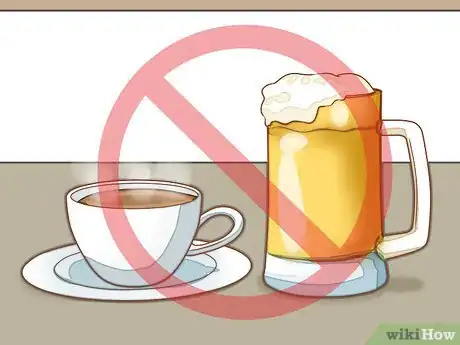


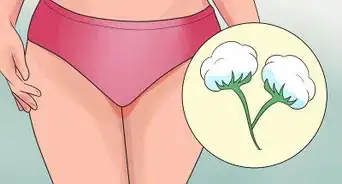


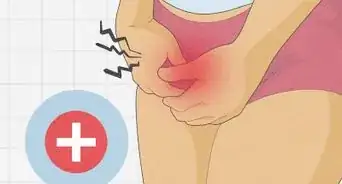



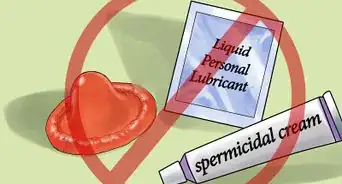

-Step-14.webp)














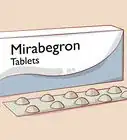




































Medical Disclaimer
The content of this article is not intended to be a substitute for professional medical advice, examination, diagnosis, or treatment. You should always contact your doctor or other qualified healthcare professional before starting, changing, or stopping any kind of health treatment.
Read More...